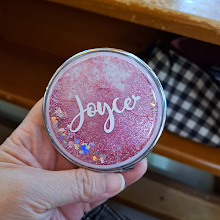 Photo and article from Combating H. pylori | theSundaily
Photo and article from Combating H. pylori | theSundailyHELICOBACTER pylori, also known as H. pylori, is a major etiological agent in gastro-duodenal disorders.
Antibiotic treatment does not always completely inhibit or kill H. pylori with potential for antibiotic resistance. Resistance to antibiotics is the single most important factor for declining H. pylori eradication rates.
In Japan, resistance to antibiotic drugs has increased 400% while in Taiwan, it is 500%. This means that those who are infected while in these countries may find the bacterium rather resistant to their antibiotic treatments. In addition, higher body mass index and smoking can also negatively affect treatment outcome.
H. pylori infection is now recognized as the causal agent of chronic gastritis and gastric or duodenal ulcers. It infects the stomachs of around 60% of the world's adult population, with prevalence reaching 95% in many developing countries. In addition, H. pylori is an independent risk factor for gastric (stomach) cancer besides dietary and socio-economic factors.
Globally, stomach cancer is the second most common type of cancer with the Japanese and Koreans suffering the highest incidence rates. An estimated 90% of people with gastric ulcers are infected with this bacterium as are more than 50% of people with stomach cancer.
Eating raw food and drinking contaminated water are the common ways Malaysians contract H. pylori, which is also found in the saliva and hence, may spread through mouth-to-mouth contact. However, not every infected person develops ulcers. Our immune system can be a major deciding factor.
Common symptoms of H. pylori infection include:
- heartburn (acid reflux)
- bloating, constipation, and flatulence since this bacterium interferes with our stomach acid levels
- feeling nauseous after a meal
- gum disease and halitosis (bad breath) since the bacterium also live in the mouth and dental cavities
- muscle loss and/or weight gain because the bacterium can adversely affect production of stomach acid needed to digest proteins and fats
- pain from inflamed or damaged stomach wall (ulcers)
Dietary and lifestyle changes are recommended for people with H. pylori infection, and these include:
- incorporating allium-rich vegetables into their diet or using garlic in food preparation. Chronic infection by H. pylori may be reduced by a higher intake of allium vegetables and all forms of garlic substances, which can have substantial anti-H .pylori effects against different strains. Studies showed a strong link between stomach cancer, which is strongly linked to H. pylori infection, and the consumption of allium vegetables
- consuming broccoli and/or its sprouts, which are effective in inhibiting H. Pylori growth. Its active compounds, such as sulforaphane, can reduce colonies of this bacterium
- sprinkling generous amounts of cinnamon on food. This spice may inhibit H. pylori just as well as some antibiotics
- consuming oregano spice. Its fresh leaves contain essential oil known to control at least three different strains of H. pylori
- consuming berries. They can significantly inhibit H. pylori. Fruits rich in ellagic acid such as pomegranate also help
- drinking two or three cups of green tea per day. Its polyphenol EGCG is a therapeutic agent against H. pylori infection























No comments